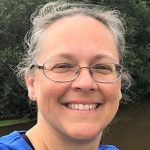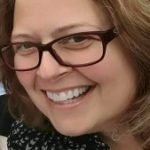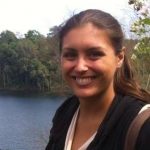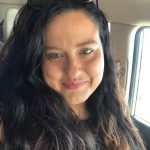
Educators
Public Dining Room
Public Dining Room
Active 2 years ago
You have a tremendously valuable platform. Walk with your fellow teachers, professors, and… View more
Public Dining Room
Group Description
You have a tremendously valuable platform. Walk with your fellow teachers, professors, and school administrators towards using that platform well to advance our North Star: lessening and mitigating the harm endured by Black and brown people, perpetuated by white people and white supremacy.
Circle Time ?
-
CreatorDiscussion
-
December 30, 2020 at 3:41 pm #4131

Christina SonasKeymasterWelcome to the Educators’ Table at Lace on Race Café! Let’s start building the love and trust that will make our community table a constructive force for racial justice.
Our field consolidates so much power into a single system: we are on the front lines at the formation of young minds and identities; we add to the layers of rank and hierarchy that follow a person throughout their lives; and we broker the creation and distribution of knowledge through academic research and publishing. White supremacy recognizes this power — arguably, created it — and binds us tightly, uses us hard, weaponizing education to perpetuate harm on Black and Brown people. In our work, we need to keep our compass on our lanyard, immediately accessible, so we can reorient, and reorient, and reorient to the North Star of reducing and relieving racial harm to people of color.
To love and to trust is to know. Who are you? What are your lumpy crossings, as an educator and as an individual? What questions do you bring?
-
CreatorDiscussion
-
AuthorReplies
-
December 30, 2020 at 3:42 pm #4132

Christina SonasOrganizerI’m Christina, and while I’m one of the moderators for this forum, mostly I’m a dedicated walker like yourself, working to improve myself across the board — resolve, resilience, reliability, agency, capacity, volition, Hesed, kind candor, and so much more! — so that every day I contribute more and better to lessen and mitigate harm to Black and Brown people, by myself, by those around me, and by the systems and forces of white supremacy.
I’ve been a homeschooler for more than twenty years (one BFA, one college junior, one high school frosh), and in leadership for fifteen, the last ten with a regional community of more than 800 families. This means that as an educator I’ve seen pretty much everything that doesn’t require an institutional setting. Homeschooling is a slice of education that encompasses extremes of racial in/justice: I have been able to give my kids a far more inclusive education academically; homeschoolers are an overwhelmingly white demographic because it takes economic flexibility to implement; both radical progressives and radical conservatives are drawn to it. I’d like to find a way to improve access for BIPOC students, not to homeschooling narrowly, but to the many alternative pedagogies and models that white students have access to, even in public schools.
-
January 1, 2021 at 1:59 am #4280

Marlise FloresOrganizerMy role in the education field is as a homeschool parent, as well. My children are all age 5 and under right now, so I am directly in the sticky place of recognizing this choice I am making has plenty of privilege, can be used as a weapon and protection of my white presenting children, and also increases disparities in education.
This is where my lumpy crossing often lies. I work to, as Lace says, make the covert overt with my oldest about how I am educating her and the problems we need to keep in mind as we proceed. I am not opposed to changing how my children are educated, should that shift need to happen. I struggle knowing my decision has been made for safety first, and ability to educate differently in regards to history and racial justice second. I am learning that the tension I feel between those only exist when I maintain an individualistic mindset. I look forward to learning from each of you and having my comfort (and my children’s comfort) challenged so that education can shift from being a weapon of white supremacy to a tool of anti racism.
-
January 1, 2021 at 10:50 am #4292

Emily HolzknechtMemberI am Emily. My field is early childhood education (and I also have 2 school-age children). During the pandemic, my usual teaching roles in that field are on hold. For now I volunteer for an early childhood education non-profit as the editor for their state publication. Others of my roles in the past have been: teacher of various ages 0-5, special education assistant, mentor for student teachers, trainer and guest lecturer.
While I have specialized in ways teachers and parents can walk eye to eye with very young children, there is always further to grow in that, more ways in which power can be redistributed. Also I recognize that I have not successfully made the same strong relationships with all of the families and student teachers I have worked with. I would also like to grow in my ability to weave racial justice into co-created curriculum. Additionally, early childhood teachers are highly exploited, a continuation of the fields roots in slavery, but as a white woman, I have been able to intentionally avoid the most oppressive aspects. Any work our field does to try to get institutions to see very young children more eye to eye is undermined by the continued oppression of those working in the field whom very few see eye to eye with.
Additionally early childhood education is often tasked with undoing inequality as if young children having the right guidance can somehow undo inequality without us ever having to do anything to dismantle systemic racism in other areas of society. Early childhood education with its exploited workers is supposed to be a magic wand. While constantly undervaluing the work early childhood teachers do and the knowledge they have, society at the same time places these huge demands on them. We must root out and confront all the ways in which early childhood education and its teachers and institutions participate in white supremacy culture and racism, but we can’t solve the rest of society’s problems. We can’t make it so that that internal, institutional and systemic work doesn’t have to be done everywhere else in society too.
-
January 1, 2021 at 1:54 pm #4319

Christina SonasOrganizerThank you for sharing all your thoughts about ECE and racial justice, Emily. I had not connected the teacher side of that equation, which was a mistake. I look forward to walking with you here!
-
-
January 1, 2021 at 3:32 pm #4338

Kerri FowlieMemberHi! I’m Kerri. I’m qualified as a teacher of English as a second or other language. I have worked, almost exclusively in adult education, although I have very fond memories of teaching children at an English language summer camp many years ago.
For the last 6 years I have taught English, Creative Writing and other courses as part of my role as tutor within the prison system.
As an immigrant to the UK, I have particular interest in the immigrant communities in my corner of Scotland, in that, prior to moving to the prison environment, I taught English to the many immigrants to the UK – particularly eastern Europeans and people from the Indian subcontinent.
My lumpy crossing? While I can claim to be an immigrant like so many of the individuals I’ve taught, my immigrant experience has been very different from most of theirs. As a white American female, I get a soft pass from many otherwise right-wing anti-immigrant locals. My lumpy crossing has been that I’ve felt somehow “above” the normal, garden-variety racist, because I’ve been privileged enough to experience and hear tales of being an “other” across several European countries. The lumps come when I realise that my experience as an immigrant (uncomfortable as it sometimes was) was dripping with all of the privilege of being a white American female, with the right accent and wide acceptance. I benefit, daily, from a system made for me. That’s sometimes been hard to accept- after all I’m far from affluent and self-assured, like many other American ex-pats I avoid. I’m a bit of an oddball, and, of all the unforgivable flaws a white American female can have, I’m undeniably fat- an ugly stereotype of a certain kind of American. So, how could I be anything less than an empathetic friend and cheerleader to the immigrants of all colours, that I teach? Lumps. I keep discovering that I am, in fact, possessor of ample, deeply-concealed (from me) “garden-variety” racist beliefs. This space has been uncomfortable, and I’ve even “got out of the car” recently, only to realise that this work is so much more important than my discomfort. I need my praxis to follow what I claim to believe. I have the added responsibility of being an educator for individuals who are often some of the most vulnerable people in our society. I love my job. I care about my learners. They deserve the best.
-
January 2, 2021 at 8:16 pm #4497

Christin SpoolstraOrganizerMy transition into the education sector came through a Peace Corps assignment. What was meant to be a two-year stretch of service before law school revealed a passion for public education that I never realized I had. My experience in the field, though, has stayed international, focused in Cambodia where I have lived since 2011; though I have since completed my MEd in Comparative and International Education with Lehigh University in PA (online).
It’s through a page for non-profits on facebook that I ran across Lace for the first time and was directed to LoR about two years ago.
So while I’m not in the classroom (and actively avoid direct interactions with students because that is the role of our Khmer teachers and staff), I am a part of setting policy and curriculum for the education NGOs for which I have worked. I am also part of an international development sector that is steeped in both colonialism and white supremacy. All of that results in some seriously lumpy crossings. Where I am currently focusing is leveraging my position and power to amplify the voices of local staff and students and to adapt policies and curriculum that are not just contextualized but created by Cambodians for Cambodians.
-
January 3, 2021 at 5:11 am #4523

Shay Roberts (Hudson)MemberHello! I’m a third/fourth grade teacher in a public school where often I am the only white person in my classroom. This has been a lumpy crossing for me as I decide what my role is and how best to talk to my students about current events, specifically racial and social justice and equity topics. I’ve found that I’ve allowed the fear of getting it wrong or saying the wrong thing to hold myself back and therefore my students back from some necessary discussions. This year as I’ve begun introducing topics and allowing the students to lead and drive the discussions, I’ve definitely gotten some things wrong, but just like I now tell my students, Mistakes are to be expected and are opportunities to learn and grow. I’ve also done a lot of reflecting on my past and current interactions with the families of my students and can now see many ways that I have been completely unsafe and violent in my treatment of students and their families, while blaming our poor interactions on the student and their family instead of taking accountability for myself and my actions. At the start of my career, I definitely approached my school community as a “mission field in my own backyard.” Cringe. Very white savior and funky top-down dynamic. This played out in my interactions with parents, not seeing them as the true expert on their child, but falsely thinking that I knew best. 12 years later and I’m still rooting this out when a child’s adult and I aren’t on the same page about something.
-
AuthorReplies
Log in to reply.